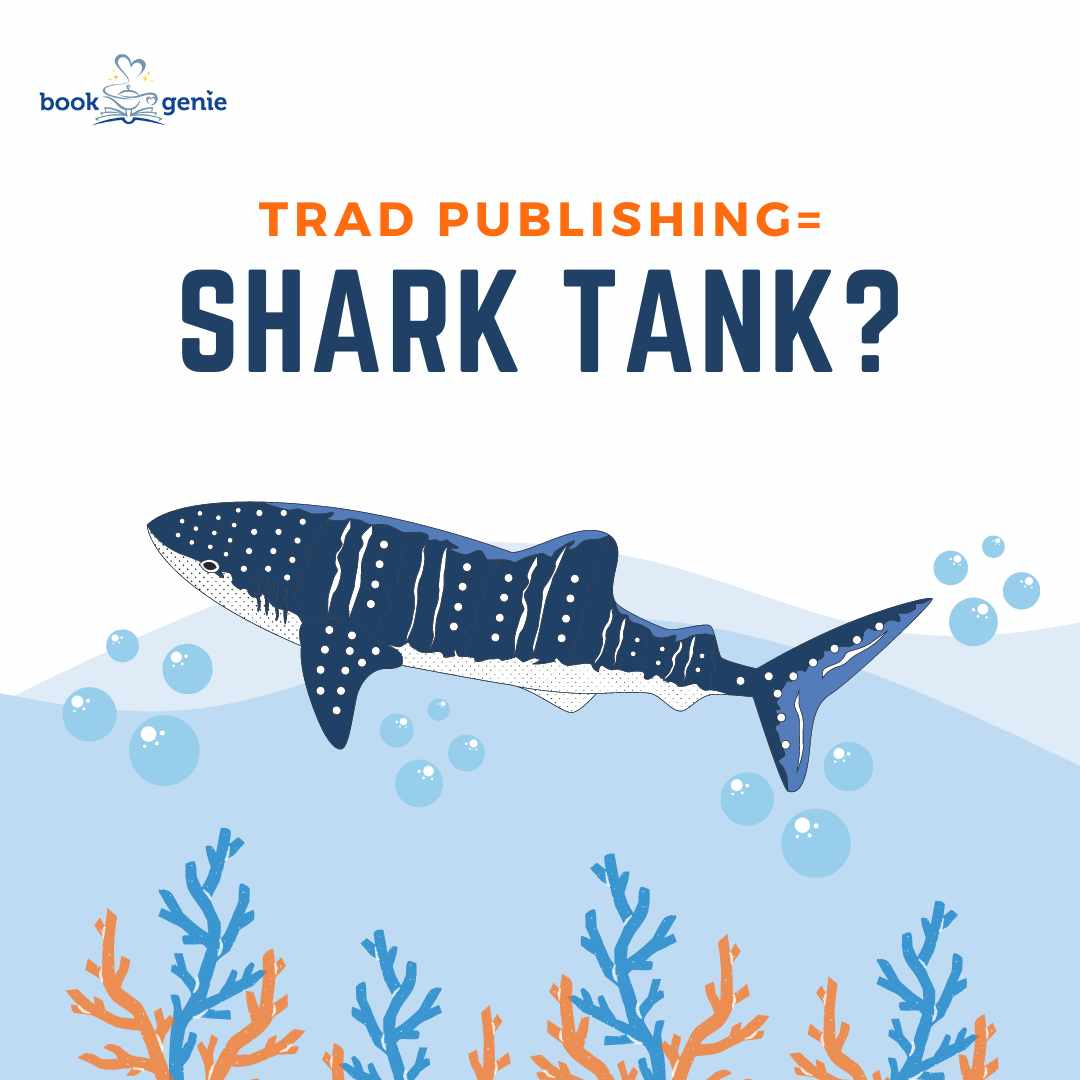The Truth About Traditional Publishing
It's Shark Tank Out There
My first real publishing job put me in the position so many editors dream of: acquiring books. I was responsible for managing an enormous slush pile for one of the highest volume imprints and had the authority to make final acquisitions decisions.
The slush pile was long. It ran deep. I mean, hundreds, of submissions per month. At certain times of year, I’d review thousands of submissions, take pitches from authors at conferences, and review multi-book proposals for authors already under contract with the publisher.
On paper, it was a dream job. But the reality was that I had to work fast. And I mean really FAST. Here is the uncomfortable truth about work that comes into the slush pile.
80% or more of the submission will be automatically rejected
Why? Because the work simply will never be a viable product. You’d be surprised how many people write their personal family biographies and send them to publishers. I don’t mean well-crafted narrative nonfiction or memoir. I mean personal life stories that were penned with love… and submitted without an ounce of awareness of the market impact the work needed.
Many people believe they have a story to tell, and they desperately want someone to believe in them. As a human, I understand that. I care! But when a submission is personal and doesn’t present a marketable project to a publisher—that’s the easiest no I’ll send all day.
Query letters that are belligerent, incoherent, or quite simply confusing will also receive an automatic rejection. Why?
Publishing companies are businesses. Scratch that. Publishing companies are risk-averse businesses with very, very (very!) thin margins. If more people looked at their books as products and publishers as investors, publishing would operate very differently.
Imagine this. You have a great idea for a product. You decide to pitch it to Shark Tank, the TV investors. When you go on Shark Tank, you need at least three things:
A well-researched and packaged product that offers something unique to the market. Want to sell BBQ sauce? Be prepared to have a heck of a story, gorgeous product packaging, proof that your concept will sell, AND the best-tasting sauce for miles around.
A clear buyer for that product. You don’t sell BBQ sauce to kids. You don’t sell BBQ sauce to grandparents. You sell BBQ sauce to the person in the house that cooks. What does your BBQ sauce offer that cook that 1,000 other sauces on the market do not? Can’t answer that? Be prepared to be bounced from the Tank.
Evidence that you’re the right person for the Sharks to take a chance on.
Does any of this surprise you? Then, I’m so sorry to say, you might be in that 80%.
Now, none of this means that you should not write the book of your heart. This doesn’t mean that you should not write against market trends. (How many times have you heard “We can’t sell zombies, can’t sell vampires, can’t sell fill-in-the-blank…”)
In order to succeed as a professional writer, you need to write the book of your heart, but then embrace the reality of your book’s function.
It is a product. And it has to make a lot of people money. And that means it has to work on many, many levels BEFORE anyone is going to be willing to give your book a chance.
Agents and acquiring editors are sharks—and I mean that in the best way.
They want to not only love your story, be able to sell your premise, but they have to have absolute faith (enough to put money on you!) that your book will be well-received in the market. If you call your book a quasi-comedic slice of life thriller with a touch of romance, what the heck is a publisher supposed to do with that? What shelf will that book go on?
Know your industry.
Understand the market space you’re writing within.
And if you’re not producing a product that can not only stand alongside but stand out, then you need to revise. Hire a freelance editor or book coach. Consult with a writing group or critique partners. You’ll be dead in the water if you jump into that “shark tank” and you’re a clueless goldfish hoping someone picks you up and puts you in a cozy aquarium!
Thankfully, authors have incredibly viable options to traditional publishing now. Over the last decade, I’ve worked with several indie authors who earn seven-figure incomes self-publishing. It can be done. Why not you?
And sure, some of those authors came up in what many refer to as (and I first heard this from the brilliant coach Becca Syme) the “Golden Age” of publishing. The market was “easier” in some ways back in 2013, 2016, and 2018. But nothing stays the same, friends. Not in life, not in art, not in publishing.
Those successful non-trad authors are doing many, many things right. See items 1-3 above. I guarantee those authors work with editors, cover designers, beta readers, and are incredibly well-read in their genre. They network. They are active on social. Maybe not everything all at once, but all of it together does work to create the groundwork for success.
Whether you aspire to traditional publishing or you want to succeed as an indie, take a lesson from the 80% of authors who never make it past the slush pile. Take a look at your query, your synopsis, your pitch, your first three pages, your complete manuscript… Are they strong enough to hook a shark?



